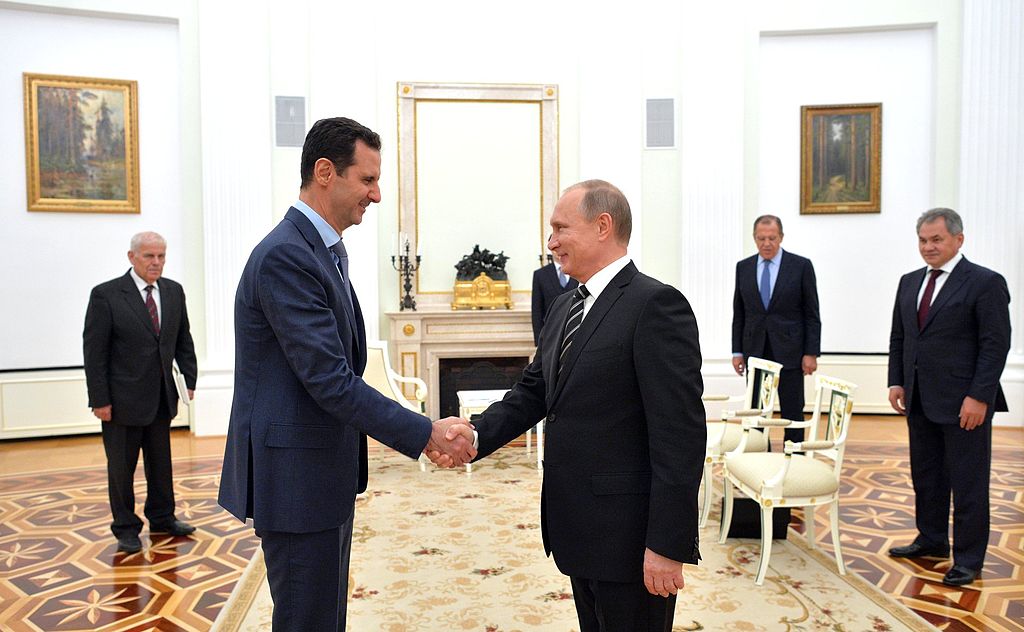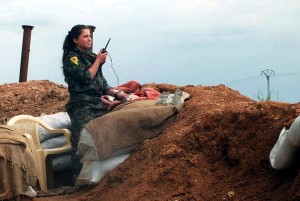by Mark N. Katz
Many observers have already pointed out how the latest U.S.-British-French attack on three of the Assad regime’s chemical weapons facilities has not done much to harm the Assad regime. Indeed, it has not even ended Assad’s ability to launch further chemical weapons attacks against his internal opponents in the future, after rebuilding his fabrication facilities—if not sooner if he has further stores of these weapons. Yet even if the Trump Administration (despite its claims of “mission accomplished”) might not have gained much from its recent action against Syria, this event also shows the limits of Russia’s influence over the situation there.
Certain Russian officials—though not Putin or his other top level associates—warned that Russian armed forces could respond to a Western attack on Syria not only by intercepting Western missiles, but also attacking the platforms from which they were launched. Not only did these threats fail to deter a Western missile attack, but Russian forces did not attempt to intercept them—much less attack their launch sites. It is possible that Russian threats served to limit the scope of the American-led attack, as well as to promote some degree of communication between Washington and Moscow to ensure that Russian forces in Syria would not be in harm’s way. On the other hand, by raising the prospect of a forceful Russian response to a Western missile attack on Syria but not following through on it, Moscow has, in fact, demonstrated that it is willing to tolerate Western attacks on the Assad regime’s chemical weapons facilities.
Why would Moscow do this? One possibility is that it well understands that these Western attacks would not have occurred if the Assad regime had not attacked its opponents with chemical weapons in the first place. Considering how much effort Putin put into working with the Obama Administration on a process that supposedly removed all chemical weapons from Syria, the fact that Assad has subsequently launched such attacks has undoubtedly embarrassed Putin because they show how little influence Moscow has over him. Further, with Assad now winning the war with his internal opponents (thanks to Russian and Iranian support), his use of chemical weapons against them is not just unnecessary, but counterproductive since it invites Western military retaliation, which the use of conventional force against Assad’s opponents does not.
Moscow has presumably made this point to the Assad regime, and yet (notwithstanding their less than credible denials) Damascus has gone ahead with such attacks anyway. Why Assad would do so may be due in part to sheer vindictiveness, but also to his calculation that Moscow will come to his aid even if he does not heed its advice. While Moscow and Washington do not want to see a direct clash between Russian and American forces, Assad may be far more willing to allow this to occur if it means greater Russian support for him.
And why would Assad want this? One reason is that Assad is especially unhappy that Moscow has adopted an accommodating attitude toward Turkey’s intervention in northwestern Syria. Moscow may hope that accommodating Turkey in its fight against the U.S.-backed Syrian Kurdish forces will contribute to the further deterioration of Turkish-U.S. relations, but Damascus simply wants Turkish forces to leave its territory. Another is that while Moscow wants Assad to make some concessions to his opponents in the Russian-sponsored Astana peace process, Damascus does not want to make any at all—especially now that it sees itself as winning.
Assad may well have anticipated that attacking his opponents with chemical weapons would lead to an American military response that would not threaten his regime’s survival, but that Moscow would strengthen its support for him as well as reduce what pressure it was applying on him to make concessions to his opponents. But if Moscow sensed that this was how Assad was attempting to manipulate Russia, it is not surprising that it did nothing to stop the Western attack on his chemical weapons facilities. Indeed, Putin might actually be relieved if Trump really could put an end to Assad’s ability to deploy them. But this, as even American military officials have indicated, was not achieved. So unless Putin somehow manages to persuade or coerce Assad into halting his practice of attacking his opponents with them, it is highly likely that a similar crisis over Assad’s use of chemical weapons will occur again all too soon.






About the football player comment please correct “ : “ he suddenly stops inviting the opposite team players to heap on him “ instead of “ and run backwards” thanks !
The notion that an attacking force would use chemical weapons is ludicrous. Attack into a cloud of poison gas?
@ Ken Kyle The Russian airbase at Khmeimim and its Tartus naval port both have the (brand new, and as yet untested in battle) S400 missile system in place for their protection. The Russians did talk about the possibility of upgrading the Syrian military’s air defences to the S300 missile system to show their displeasure at the recent US, UK and French airstrike as well as the recent Israeli incursions.